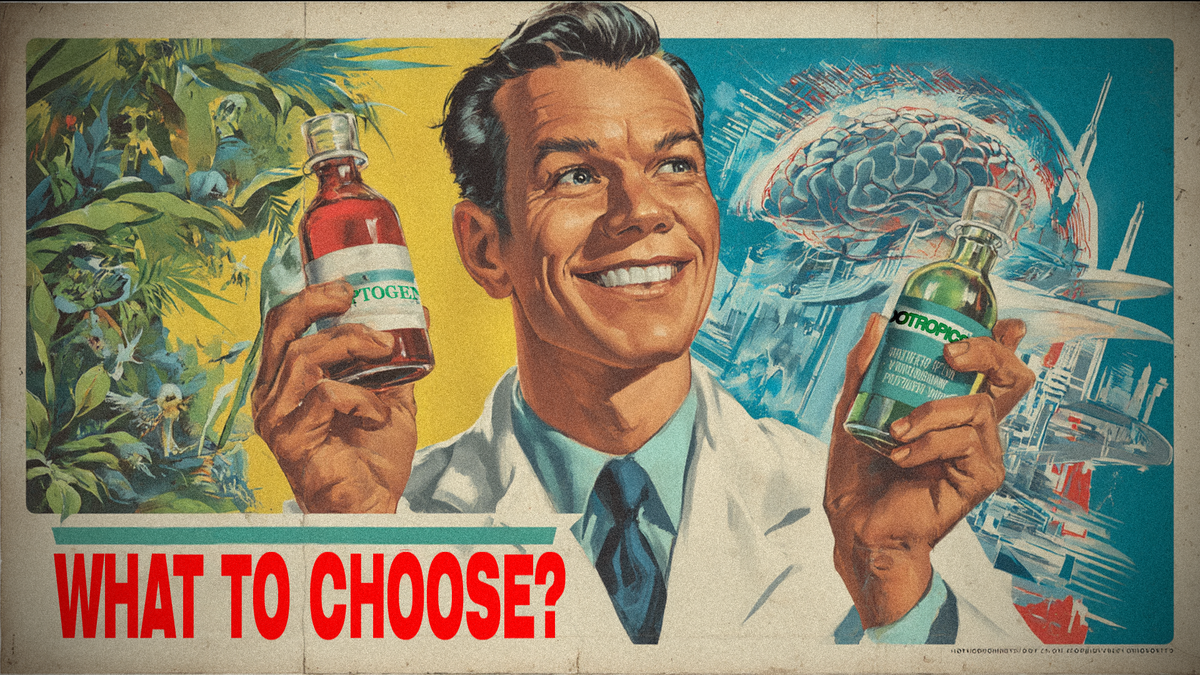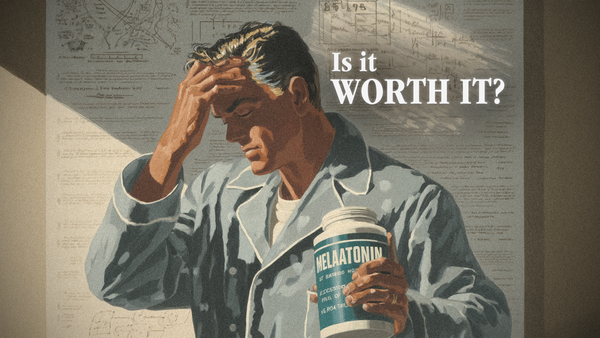Adaptogens vs Nootropics: What’s the Difference?

In today’s wellness world, it’s easy to get lost in the flood of supplements promising better energy, sharper focus, or stress relief. Two terms that frequently come up in this space — adaptogens and nootropics — are often used interchangeably. But they’re not the same thing. In fact, they serve distinct functions, target different systems, and can have complementary or opposing effects. Understanding the difference is essential if you want to build a smart, effective supplement stack.
Let’s start with adaptogens.
Adaptogens are natural substances—often herbs or mushrooms—that help the body resist and recover from stress. The term was first coined in the 1940s by scientists studying how certain compounds increased resilience in soldiers and pilots. To qualify as an adaptogen, a compound must meet three criteria:
- It must help the body resist physical, chemical, or biological stress.
- It must support the body’s return to baseline (homeostasis).
- It must be non-toxic and produce minimal side effects.
In simpler terms: adaptogens normalize your stress response. They work primarily by modulating the HPA axis — the communication system between your brain and adrenal glands that governs cortisol levels and stress adaptation.
Some well-known adaptogens include:
- Ashwagandha – Known for lowering cortisol and improving sleep quality.
- Rhodiola Rosea – Enhances energy and reduces fatigue from mental or physical exertion.
- Eleuthero (Siberian Ginseng) – Boosts endurance and immune resilience.
While they don’t typically offer immediate “kick-in” effects, adaptogens build over time. Their strength lies in long-term regulation of stress, not instant stimulation. For anyone dealing with burnout, chronic fatigue, or hormonal imbalances, adaptogens often form the foundation of a supportive recovery protocol.
While adaptogens focus on stabilizing the body’s response to stress, nootropics operate in a completely different realm: they target the brain to enhance cognitive performance.
The word nootropic was coined in the 1970s by Romanian chemist Corneliu Giurgea, who defined it as a substance that improves learning and memory, protects the brain from injury, enhances attention and focus, and has minimal side effects. Since then, the definition has expanded, and today, nootropics include everything from synthetic compounds like modafinil to natural substances like L-theanine.
Nootropics work by influencing brain pathways — typically those involving neurotransmitters like dopamine, acetylcholine, glutamate, and serotonin. Their effects are usually more immediate and pronounced than adaptogens, making them popular among students, professionals, and anyone seeking a cognitive edge.
Popular natural nootropics include:
- Lion’s Mane Mushroom – Stimulates nerve growth factor (NGF), potentially enhancing neuroplasticity and memory formation.
- Bacopa Monnieri – Improves memory recall and reduces anxiety, though it may take weeks to build up effects.
- L-Theanine – Found in green tea, it promotes calm focus and works synergistically with caffeine.
- Citicoline – Supports acetylcholine production and enhances mental clarity and focus.
It’s worth noting that not all nootropics are created equal. Some are stimulating (like caffeine or rhodiola, which straddles both categories), while others are calming or neuroprotective. Unlike adaptogens, nootropics tend to be more task-specific: you take them with a particular goal in mind — better focus, enhanced verbal fluency, or sharper memory.
Despite their different mechanisms, adaptogens and nootropics aren’t mutually exclusive. In fact, they often complement each other, and many people integrate both into their routines depending on their needs, stress levels, or cognitive goals.
A practical way to understand the difference is by looking at outcomes.
If you're:
- Constantly overwhelmed, anxious, or struggling to recover from physical or emotional stress — you're likely to benefit more from adaptogens. They don’t give you a jolt of energy but help your system become more resilient, making it easier to cope with stress long term.
- Feeling mentally sluggish, having trouble concentrating, or facing memory lapses — nootropics may offer more immediate help. They enhance signal transmission in the brain, helping you think clearer and faster.
Some compounds even blur the lines. For example:
- Rhodiola Rosea is often considered both an adaptogen and a mild nootropic. It reduces fatigue while also enhancing alertness and reaction time.
- Ashwagandha can support both stress reduction and mental clarity, especially when used over time.
The best approach is often synergistic. Pairing adaptogens with nootropics can create a balanced stack—supporting the brain’s function while also protecting it from the wear and tear of daily stress.
Here’s a simple stack idea:
- Morning: Rhodiola + L-Theanine + Caffeine — for energy and focus without overstimulation.
- Evening: Ashwagandha + Magnesium Glycinate — for relaxation and nervous system recovery.
By understanding the strengths of each category, you can build a smarter routine that supports both mental performance and long-term wellbeing.



